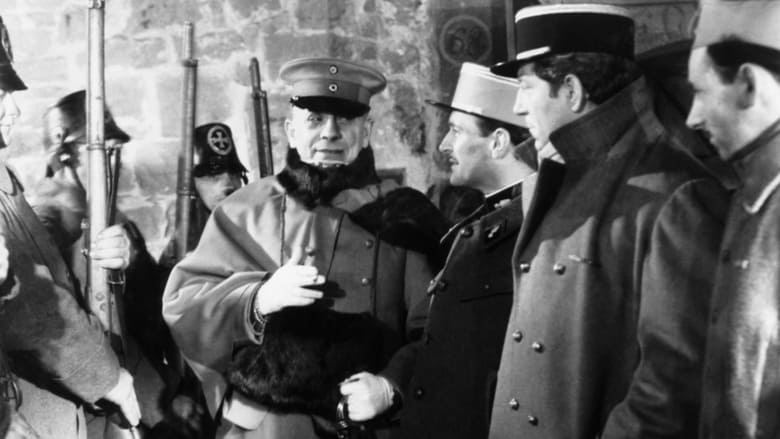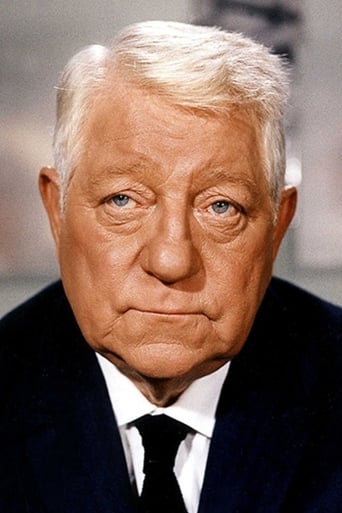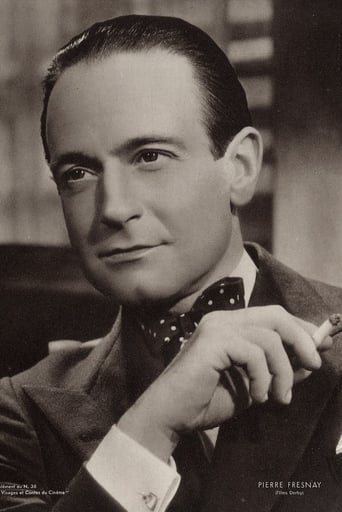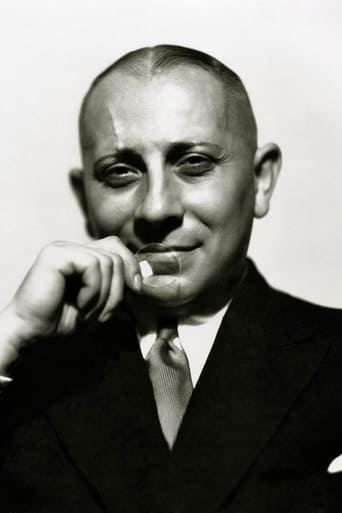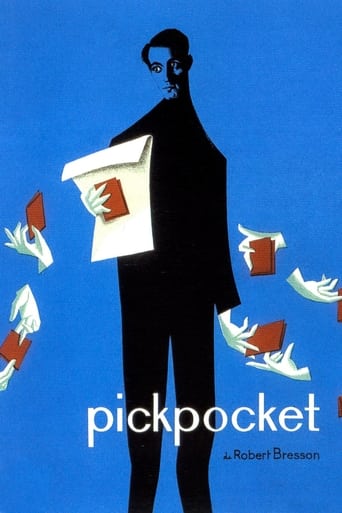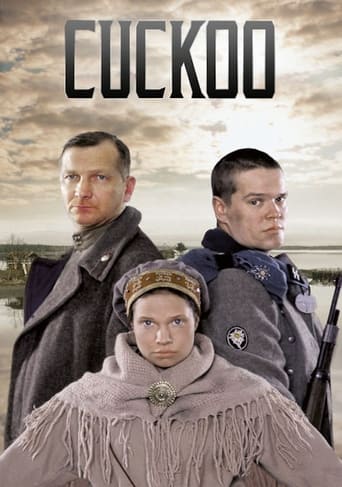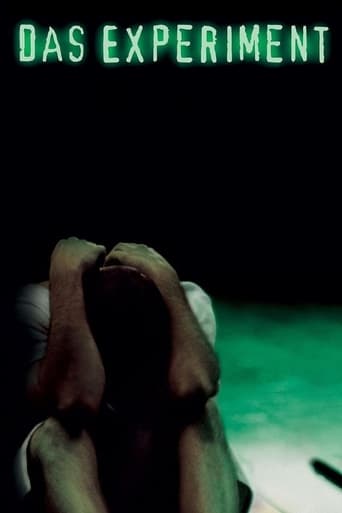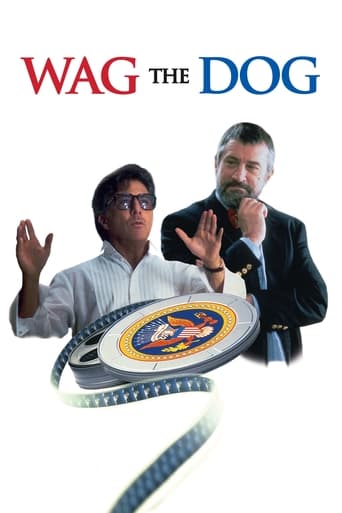Grand Illusion (1937)
A group of French soldiers, including the patrician Captain de Boeldieu and the working-class Lieutenant Maréchal, grapple with their own class differences after being captured and held in a World War I German prison camp. When the men are transferred to a high-security fortress, they must concoct a plan to escape beneath the watchful eye of aristocratic German officer von Rauffenstein, who has formed an unexpected bond with de Boeldieu.
Watch Trailer
Free Trial Channels
Cast


Similar titles
Reviews
What a waste of my time!!!
The greatest movie ever made..!
There are moments that feel comical, some horrific, and some downright inspiring but the tonal shifts hardly matter as the end results come to a film that's perfect for this time.
Great story, amazing characters, superb action, enthralling cinematography. Yes, this is something I am glad I spent money on.
I'll start this review by stating one cannot regard a film from 1937 and gauge it the same way he would a contemporary movie. This here is the sort of film that seemed to have inspired a Stephen King for example to write the resounding classic 'the Shawshank Redemption' with certain ideas obviously picked from this pre-world world II document of a piece. So it is no doubt a pioneer, and its credit for that is due.However. As a film from any one period in time, as just being a film: its dialog is only interesting in some bits but overall quite ordinary if not flat and the film doesn't say much or carry any kind of a moral anywhere or ultimate message, if not values of honor or emphasizing that nations don't divide individuals but nothing like a grand scheme subtly knitted. The film is a succession of events chained up together to form the narrative where there are just scenes and then more scenes and a story to follow, it being rather uneven structurally in fact. It's one of those films that seem to go one way, then choose another direction and when the end seems to come there's still more to go and yet another setting to process. The escape scene is a bit ridiculous and certainly unrealistic in its concept, and there isn't much to extract from any of the main parts of the film. Some have pointed to the historical context as being cinematic artifact, but depicting two high society aristocrats one French the other German being bound by class rather than by culture is hardly an awesome achievement, we get it and it's quite commonplace for this sort of film and context - and if anything the film seems a bit biased and appears to pick a side about that class conflict apparently awarding more glitter to those two rather than the mere soldier kind, so the film feels at least a bit like it's got a political position.
There are certain films that, due to their strong reputation and historical significance, are supposedly beyond criticism. Citizen Kane, Seven Samurai, 2001, The Godfather and many more are examples of films that despite not being necessarily perfect, many say that they are beyond criticism, and that if you do criticism them, you must discuss what masterpieces they are first. One of those films is Grand Illusion. Considered to be one of the first prison escape movies ever made, the film is meant to be one of the best ever made, for not only being the grand-daddy of prison escape films, but for having great characters, an engaging story and a strong anti-war message laying underneath its skin. However, while it does have many positive attributes, Grand Illusion isn't the masterpiece everyone believes it to be, due to poor narrative and being very overlong.The plot is that after being shot down during an aerial battle, a group of French soldiers are sent to a German prison. Here, they decide to escape, and use many cunning plans in order to do so. That's really all of the story there is here, and while its simple nature makes it seem impossible to screw up, the story is poorly told here. This is due to how there isn't much of a story throughout much of the film, and many scenes consist of characters talking about things not story related or utterly pointless scenes as well (i.e. a scene where the prisoners display a show to the Germans) that should have hit the cutting room floor. Because of this, the film feels very baggy and overlong as a result. It also doesn't help that the character development is quite inconsistent. While I understand that the film is essentially an ensemble piece, there are too many characters for the film to juggle, leading to few characters we care about or are interested in, and many we couldn't care less about. It also doesn't help that there isn't much threat from the villain characters, as they act very friendly towards the heroes and in a later scene when a protagonist dies, the villain tends to his need. Sure, the scene that this leads to is a wonderful moment (something the film sadly has too little of) and it does represent director Jean Renoir's pacifist views but it fails to create any tension or conflict within the story, and if the audience doesn't care about the events on screen, then what's the point of watching?The film isn't a complete disaster though. The film is clearly well made , some of the characters are at least interesting and the cast are excellent, with Jean Gabin, Marcel Dalio & Erich von Stroheim in particular giving standout performances. It is also at least an entertaining experience for the most part, and it is also an interesting watch, as it is compelling to see one of the first prison escape films and to see how it influenced later prison escape films as a whole.It is because of this that while Grand Illusion isn't a complete failure, it is very flawed and it hasn't aged very well, due to its overlong length, barrage of pointless material and lacking any tension or suspense for the most part. However, there are some great moments here and there and the acting is fantastic overall. So in conclusion, what you have is a mediocre film that despite its iconic status is quite problematic. However, it is worth checking out to see one of the forerunners of the prison escape genre, and is occasionally brilliant here and there. If you must get it, get the Criterion version above all others, as it goes into great detail about the film, it's history, cast biographies and Nazi ban. To be honest, the edition gives the film a better treatment than it perhaps deserves.
What a lovefest! Though set in the middle of World War I, yet this movie shows everyone getting along fabulously. A German and a French officer regard their class as more important than their nationality, the German being very sad when he has to shoot the Frenchman. A Christian and a Jewish officer become pals and celebrate Christmas together, at a time when anti-Semitism was quite common. A German widow protects two French officers who have escaped, falling in love with one of them. They plan to get married after the war. When the two escapees make it over the Swiss border just as the Germans arrive, the Germans are relieved that they do not have to shoot them.In the face of all this brotherhood-of-man stuff, we are forced to conclude that the whole war was just some big misunderstanding among friends.
Jean Renoir's "The Great Illusion" (1937) is often celebrated as the greatest anti-war film. It takes place during the First World War and was made just before the Second. Back in the day, Franklin Roosevelt stated that everyone who believes in democracy should see the film. Detaching from such political idealism, one might claim that every human being should see it. It's the film in which Renoir's humanism crystallizes, showing that humanity can preserve even in the darkest of nights. A story about POW camps and people escaping them is a tale of eternal love, friendship and yearning for freedom. A proof of its cinematic power is that without showing a scene of actual combat, "The Great Illusion" is the most accurate portrayal of WWI. It seems that every film about the First World War much deal with its mythological position as the death of cultural innocence. Although "The Great Illusion" begins with the war already going on, its opening scene works as a metaphor for the period before the war. We see a man singing in a café when all of a sudden he is called for a mission to transport a general which sounds easy and quick, but then turns into a long and unpredictable chain of events -- talk about dancing off to war. Not only does Renoir reach the fact that WWI was pointless and a consequence of ostentatious nationalism -- arms race, alliances and hostilities -- but also the feeling of transience as aristocracy begins taking its final breaths. In the hour of disappearance, two aristocrats, Bouldieu and Rauffenstein (aptly played by Erich von Stroheim), unite. The old general in "The Rules of the Game" (1939) might say that they are a vanishing breed. It is beautiful and moving that Renoir's nostalgia considering this social transition has no irony whatsoever, despite Renoir's apparent sympathy for the working class. The nostalgia is very tender. All that matters to Renoir is humanity. It is precisely this human sympathy which is the strength of Renoir's cinema. This is present in Renoir's characterization, treatment of the class theme, and his anti-nationalist philosophy of the great illusion. André Bazin's timeless words are worth repeating at this point: "the grand illusions are the illusion of hatred, which arbitrarily divides men who in reality are not separated by anything; the illusion of boundaries, (...) the illusion of races, of social classes (...). The war, the product of hatred and division, paradoxically reveals the falseness of all the barriers of prejudice separating man from man."One of the many reasons for the survival of "The Great Illusion" in the test of time is its realism (that is not afraid of poetry) which travels from the director's style to his world view and attitude towards life in general. Bazin thought that the film was based on the authenticity of human relations. I believe this is a key into understanding the film and its legacy. War is the great illusion because it separates us from one another. Yet, despite darkness and disappointment, Renoir continues to believe in love and humanity.


